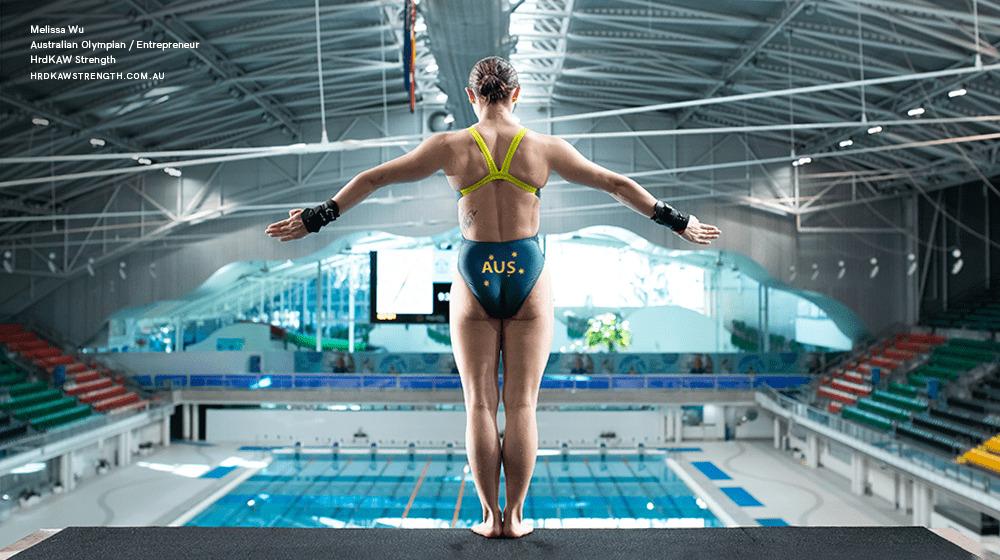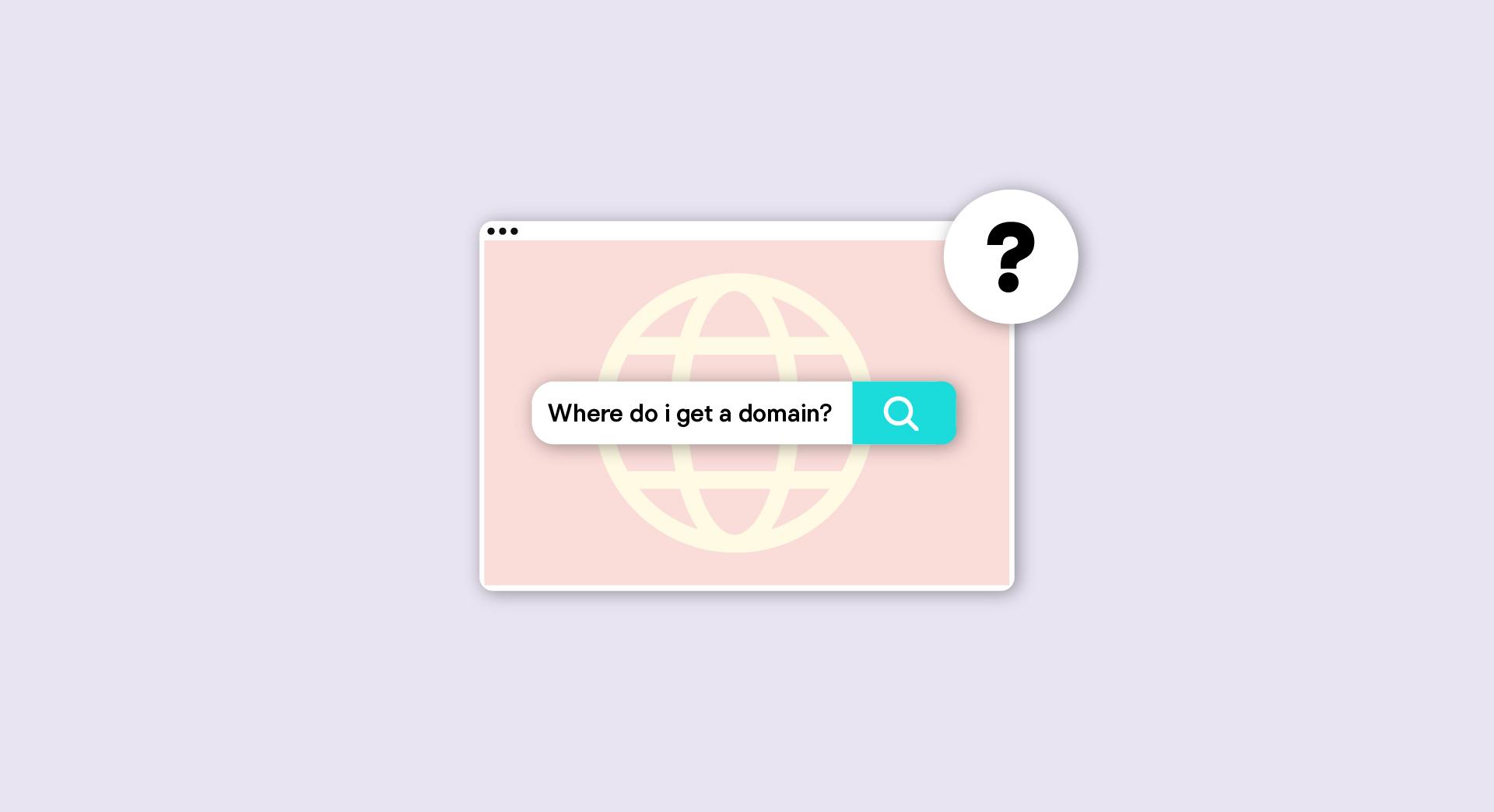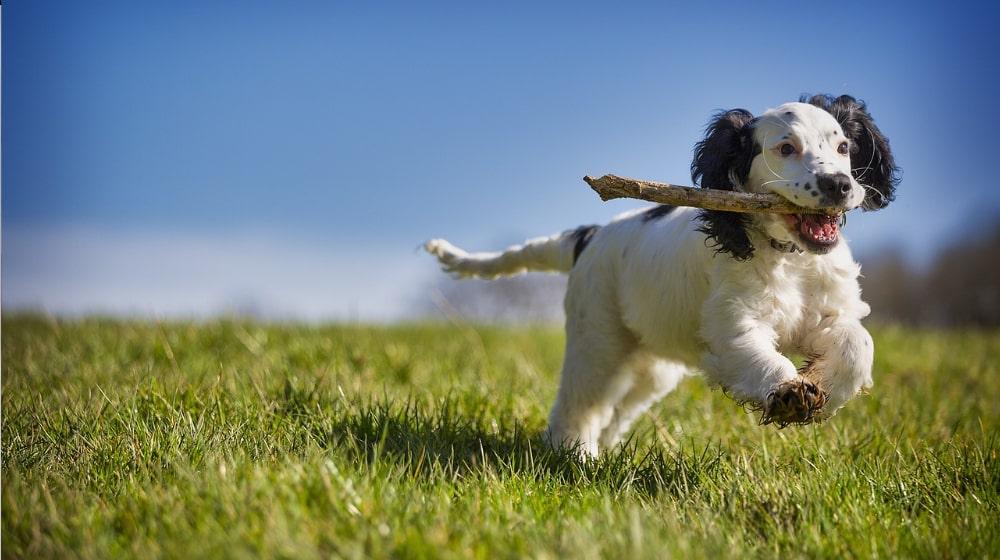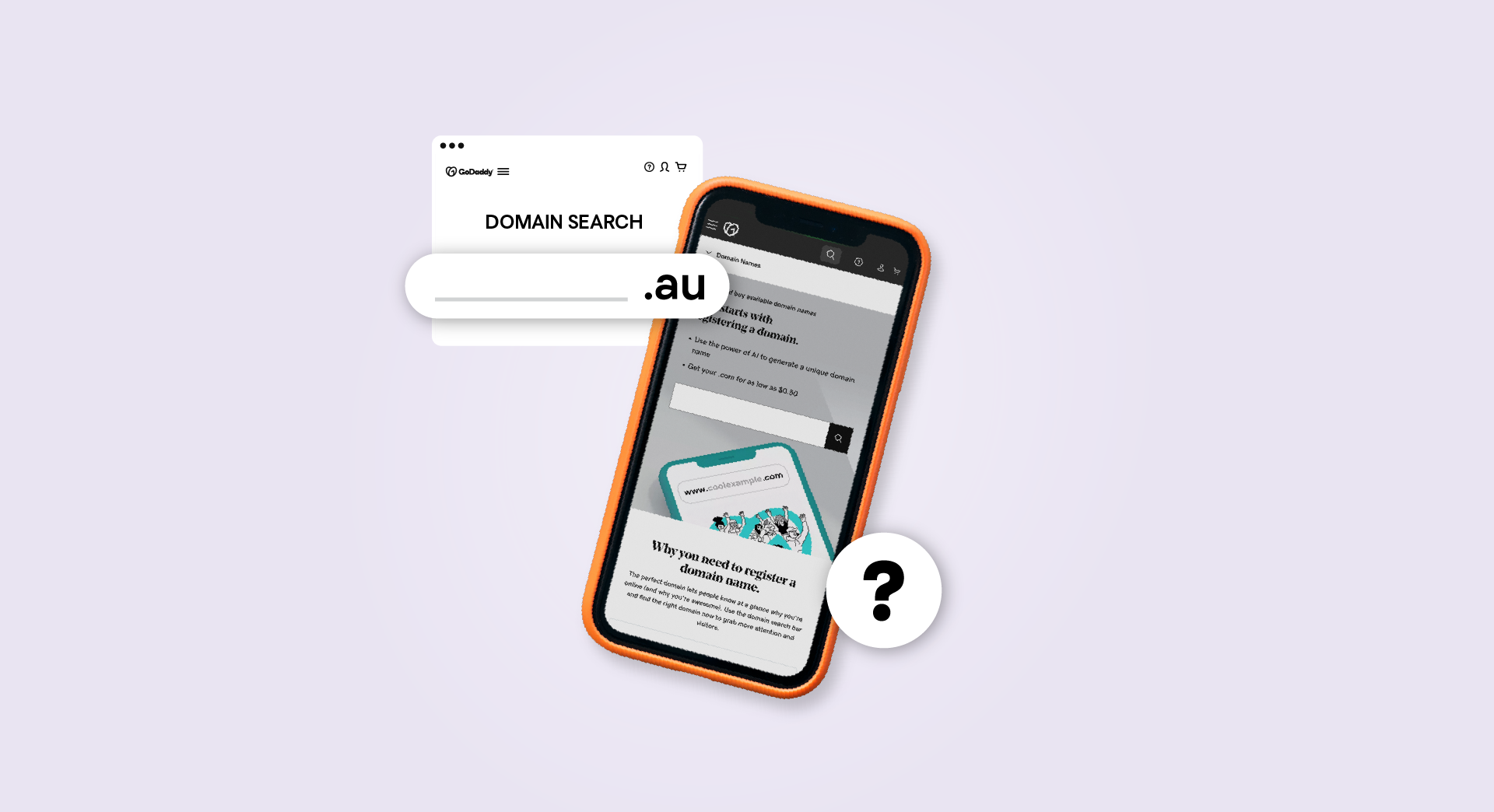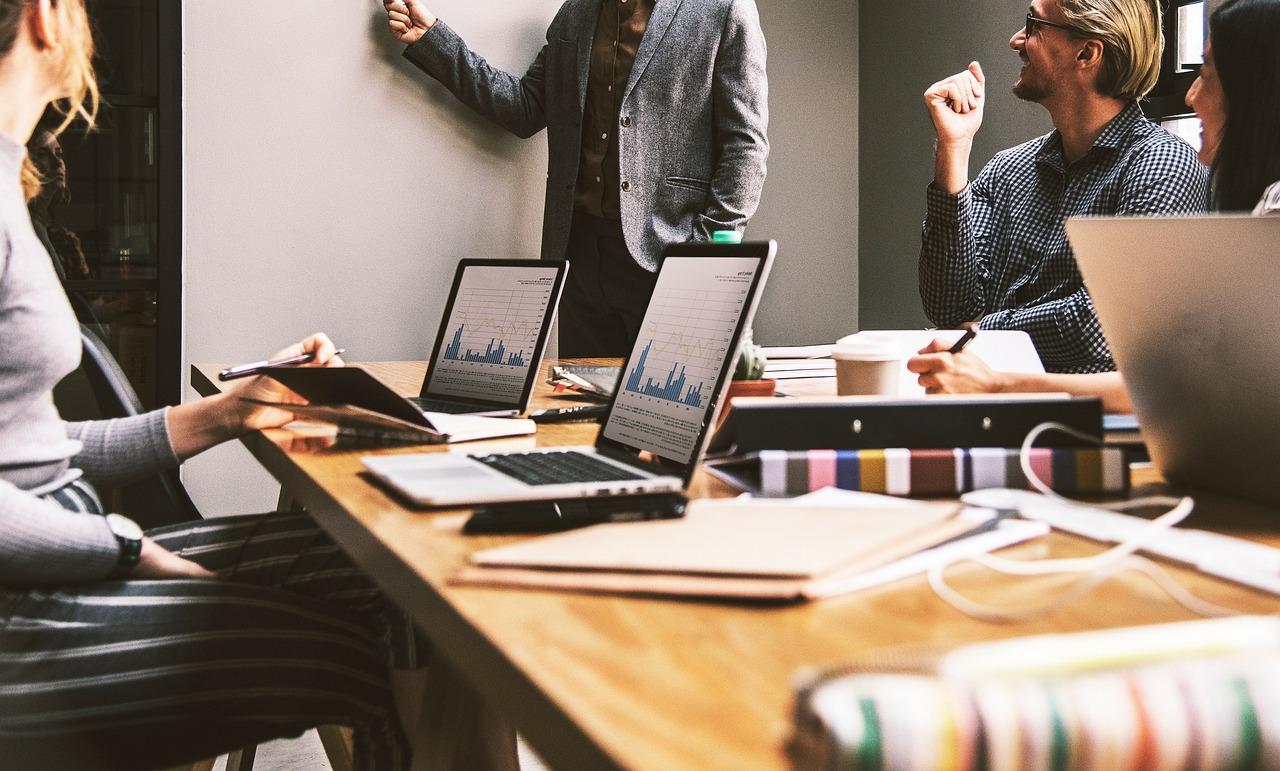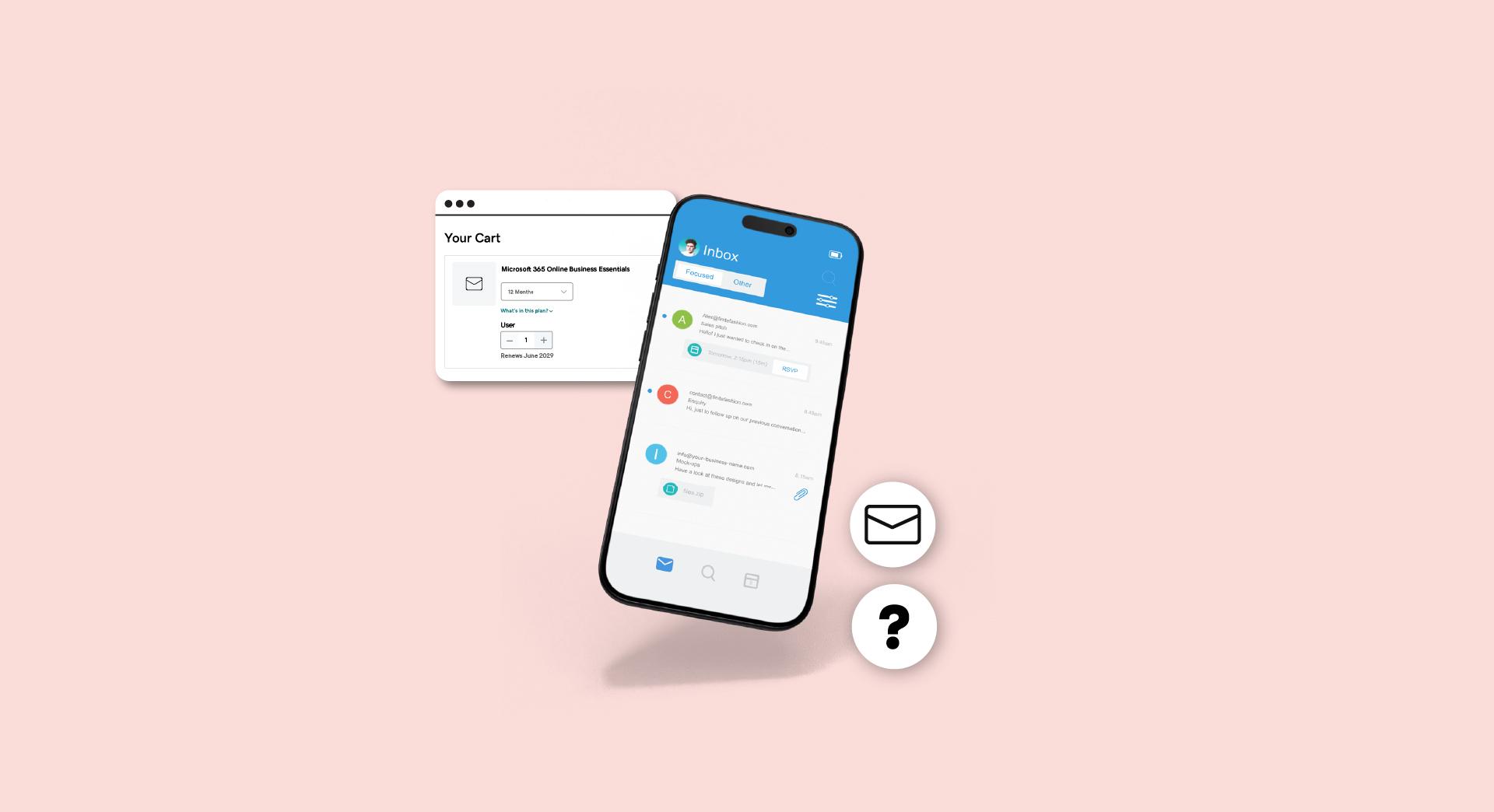We’re talking with our GoDaddy Olympic ambassador & entrepreneur extraordinaire, the incredibly inspirational Melissa Wu. Not only has Melissa been competing as a professional diver since she was just 13 (!) with an Olympic silver medal to-boot, but she’s also a proud small business owner of not one but three businesses. We chatted with Melissa ahead of the Tokyo 2020 Olympic Games to see how she’s feeling and for some wise words of wisdom for other small business owners juggling it all.
This interview has been gently edited for length and clarity.
GoDaddy: Thanks for chatting, Melissa! First of all, why diving? What inspired you to follow that dream?
Melissa Wu: My older sister used to be a swimmer, and she was really good at it when she was younger. She used to race at Olympic Park [in New South Wales] quite frequently, and that’s where I saw diving for the first time.
I was always flipping around the house and I did a bit of gymnastics when I was younger, so as soon as I saw diving, I thought “wow - that’s amazing and I want to do it.” So I begged my parents and that’s how it all started.
GD: How are you feeling ahead of the Olympics?
MW: It’s definitely going to be a very different Olympics to previous ones, but the fact it’s going ahead is really exciting.
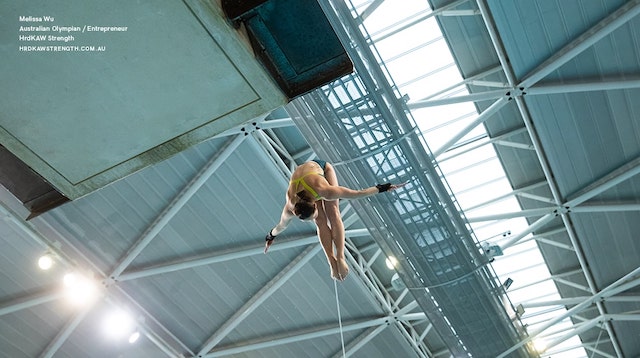
With a lot of the world still struggling with COVID-19, to have an event that brings a bit of hope and brings the world together is really cool.
But no matter what happens, I think it’ll be an amazing Olympics. Japan’s an awesome country and Tokyo is an awesome city and I think they’ll do a great job hosting.
GD: What are your dreams for these Olympics?
MW: I’d love to just put in a really good performance. A performance of a lifetime, that would be amazing.
Diving is a really mental sport, so performing under pressure in the moment that counts is challenging, so to do that would be amazing. I think if I can do that, the result will take care of itself.
I personally don’t focus too much on what colour medal or what place I get. I like to just focus on the process, and if that goes to plan, then things usually go pretty well for me.
GD: As someone who has competed professionally from such a young age, how do you deal with pressure?
MW: My first big competition was at the Commonwealth Games when I was 13, and I didn’t really feel the pressure. I think you only get that opportunity once when everything is so new and you’re a little naïve, and you don’t know what’s coming next. But after that, especially since going to my first Olympics, I already felt the pressure at the age of 16. The pressure is always there.
I think it’s something that I’ve gotten pretty used to over time, but actually I think the pressure as an athlete comes mostly from yourself. That pressure from putting in all the hours, knowing that it’s what you’ve been training for, your coach is invested, and that you owe it to them, the Institute and yourself.
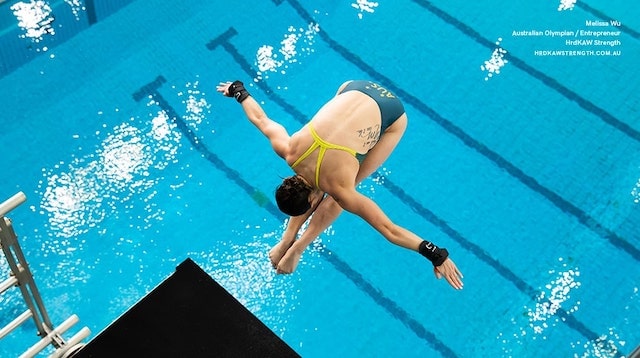
I’ve had to work really hard over time to control my mindset and cope. Learning to not always be so hard on myself. To just give myself the time and space to be able to perform the way I need to.
GD: Who or what helps you to stay motivated?
MW: I’m lucky in that I’ve always been a motivated person, but I think having a bunch of different things to work on is good, as it helps keep it new and exciting.
So even though my diving training is probably the most stable thing that doesn’t change much, I jump from that to business-mode, and everything is different and exciting.
The people around me also help me to stay motivated. Sharing a business with my brother who is doing so well in business motivates me to keep up my end of the bargain and do what I need to do. It’s like the Diving Academy with my friend Kevin, when two people are working on the business and they’re both invested, it makes you want to do better and be better.
GD: Do you see similar qualities between elite athletes and entrepreneurs?
MW: Definitely. I think the biggest similarity is the ups and downs and building resilience.
It’s really important in both [sport and business] to be able to bounce back, but to also let go of what’s happened in the past, reset and refocus on future goals.
What I’ve learnt is that when things are up in the air or don’t go to plan, it’s how you deal with the challenges and how you see it.
Whether you look at it as an opportunity to improve things next time, or dwell on it and let it affect what happens next.
GD: How have you built resilience over the years?
MW: I’ve learnt a lot as an athlete about respect, and that it’s about the time, passion and effort you put into something.
When something doesn’t go your way you can take it really personally and it can be hard to bounce back. So as an athlete, I’ve learnt the importance of mindset and always trying to find the positives in things. I know it’s kind of cliché and everyone says it, but honestly how you look at something determines what you’re going to do with a situation. Are you going to:
- Learn from it?
- Let it hold you back and set limitations on yourself?
Learning as an athlete to just move on and get the job done has been so important and beneficial, for me as a business owner as well.
GD: What inspires you to help with resilience?
MW: There’s a quote that I use a lot - actually it’s my tattoo across my left rib, that just says ‘only as much as I dream can I be.’ It’s important for me because I know that if I set limitations then I’m only hurting myself, and if I allow myself to just go with it, then the possibilities are endless.
GD: What’s it like coming back to everyday life after huge events like the Olympics?
MW: I know from previous Olympics that when you’re on such a high and then you come back, and this one will be particularly hard as you have to go into two weeks of quarantine and I can’t think of anything more challenging than coming off the high of the games into quarantine, there’s definitely that period where you feel a little low as you’re coming out of the excitement bubble from the last few weeks. But I’m actually excited to come back and have things to do with my businesses to keep me motivated and keep me going.
Now for a look at Melissa’s businesses
It may be mind-boggling but Melissa Wu has not one, but three businesses.
GD: Let’s start with your first business. What is Havok Athletic?
MW: Havok Athletic is my activewear label — we make activewear predominantly for athletes in strength sports like CrossFit and weightlifting.
We really value strength and community, and celebrating what the body can do, rather than just how it looks.
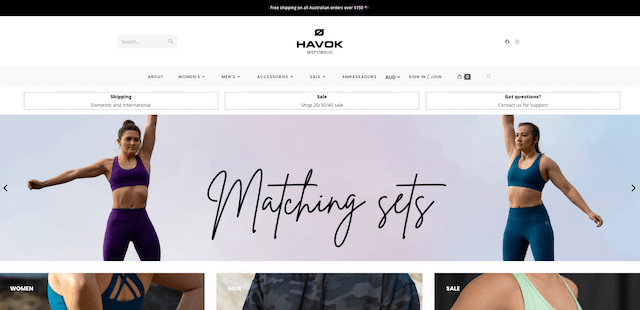
As an athlete I think that’s really important. I want the brand to help other people feel part of a community and wear clothes that enable them to perform their best and feel good about what they're able to achieve. They’re all designed to be comfortable and look good, obviously.
GD: And your second business – can you tell us a little about HrdKAW Strength?
MW: So HrdKAW Strength is a gym that we currently run out of our own garage like a home gym, or from a friend’s gym. It has a bit of an unusual name, which actually comes from the initials of my sister’s name Kirsten, who passed away a few years ago now. So HrdKAW Strength is in honour of her and her name, and we think it's pretty fitting for the name of a gym.
When we first started (my brother and I), we weren’t sure of exactly what we wanted to do.
Both of us had been coaching, doing some general PT work. Josh had been doing weightlifting coaching and I’d been doing diving and other types of coaching. So it was a bit more general to begin with, but then we really decided to focus harder on the weightlifting aspect.
We then created a weightlifting club called HrdKAW Weightlifting Club, which is now the biggest club in New South Wales — it’s getting to be one of the biggest clubs in the country, which is pretty exciting. And out of a garage gym! My goal when I retire from diving is to get a premise for the business with my brother and sister, who also run coaching and manage social media.
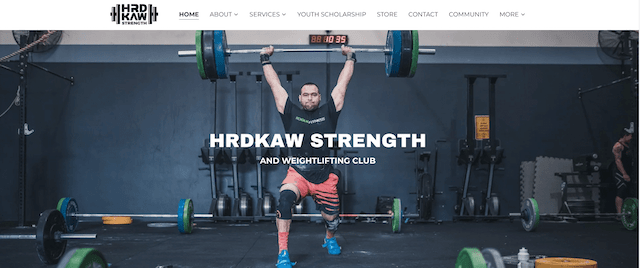
GD: And your brother Josh is quite a talented athlete in his own right we hear?
MW: Yes he is. He's a weightlifter as well, and he’s competing at the moment. So he's trying to juggle training and competition and coaching and running the business as well. So we're all very busy [laughs].
GD: You’ve also got a third business! Can you tell us a little about the Australian Diving Academy?
MW: So this is a new business. Diving isn’t a very big sport, so it’s something we’re testing the waters with as we go.
Half of our [diving] training is based on dry land, where you practice skills and take off into foam pits, crash mats, that kind of thing.
As an athlete, I have access to that in New South Wales and Sydney, but most club-level divers don’t have access to that. We're the only state in Australia where club kids don't have any access to these facilities.
The Australian Diving Academy is a specialist diving coaching service I run with my friend Kevin Chavez, who’s also an Olympic diver. So we run it together, and give club divers the opportunity to:
- Train with us
- Work on mindset
- Get access to dry land facilities, which they don't normally have access to
GD: You are one busy lady! How do you split your time between each business? Do you have a favourite?
MW: [Laughs] No, not really. They're all really different. My role in each business involves a lot of different things.
But in terms of my weekly schedule, because I am doing this and juggling diving, my schedule is very set in stone, and that includes time commitments across all three businesses. I basically get a certain amount of time that I just have to allocate the best I can, and put that time into whatever needs to be done. But I'm definitely very passionate about all three of them.
GD: Is routine important to you?
MW: Yes — routine is super important. Like I said, my schedule is literally set in stone, and I often run from one thing to the next to the next. And I don't even have to think about it, I just know, “OK, this is whatever day it is, so I'm going here, here, here and here, and this is what is going to happen.” And then I try and maximise the time I have in between to do things, although I don’t always feel like it!
GD: What inspired you to create your first business? How’d you take the plunge?
MW: I think having the support of my brother and family, who are very involved, really helped.
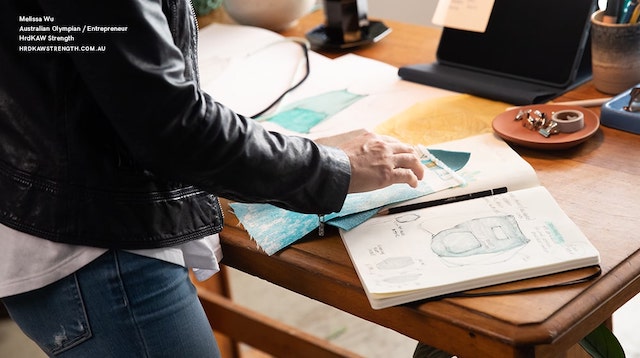
We’ve always been athletes who are passionate about sport. We’d also done coaching separately and we both really enjoyed that. I think that’s what inspired us to start the [HrdKAW Strength] business.
The hardest thing was figuring out where we were going to go with it, but once we really figured out we were going to narrow the focus and stick to weightlifting, I think that's when we got really excited. And that happened gradually over time. We first set the gym up as a more general gym, and then we had to redo it again later for weightlifting. But that was the inspiration. Being able to coach and help people.
GD: What was your biggest barrier to starting your first business?
MW: I think it was just not knowing what to do or how to go about it. I think the hardest thing for my brother and me, was that we could never put 100% in with our other time commitments. I know that’s the same for many business owners, particularly when it’s more of a side hustle.
So we wanted to ensure we didn’t have any big overhead costs, and having the gym in our garage was the best way to do it. But apart from the physical space, we’d never started a business before, so we had no idea, so I think that was the hardest thing when we first started. Knowing what to do, and what order to go about it.
GD: What steps did you take to make the process of starting a new business feel less overwhelming?
MW: I like to make sure everything is done perfectly, and everything is ‘done’ before I take a step to do anything. So it was taking like a long time! But my brother and I thought “Let’s just get in and do it and whatever happens, happens. If something goes wrong, you just need to deal with it” – that sort of thing.
Having people around me really helped. If I had to start my first business by myself, I think I would have been much slower to get it going and get it moving. But having people around me to say, “Just give it a go,” I think that’s what really helped push me.
GD: Did you find it easier to start your second business?
MW: I think that initial setup and those things were much easier for me and much less scary because I'd already been through that process before. But [Havok Athletic] is a completely different business, so there were still so many unknown things that second time. And that's not necessarily on the business side, but the actual operations — like finding a manufacturer and things like that to get the business going.
GD: What would you say to others who dream of starting their own business but don’t think they have the time?
MW: I would say that you never have enough time, so it doesn't matter if you've got one business or three. It doesn’t matter what you’re doing, in this day and age time is always a factor. There’s no perfect time to start, you may as well just do it now.
You're not going to have any more time down the track than you have now, so just do it. If you have an idea or desire to start something that keeps eating away at you, then just do it and just start working towards it.
GD: Was building a website a priority for your businesses?
MW: A website was really important for HrdKAW Strength, because we were building word of mouth in the area.
You need somewhere to send people to show what you offer, who you are, and how you can help them.
And when you’re offering services, people want to know exactly what it is, pricing, where they can submit an enquiry, so a website for us was a must from the get-go. We see a lot of activity, like people searching for our business with Google, or having us pop up when people search for weightlifting in their local area.
Havok Athletic is an online retail site, so the website is the biggest part. Making it easy and accessible for customers to find us and buy our clothing is essential.
Editor’s note: If you have a small business but no business website, now is definitely the time to get one. Build it yourself with Website Builder (truly no tech skills needed!) or let the pros at GoDaddy build it for you.
GD: Thinking back to when you started your first business, what’s the one thing you wish you knew then that would have made life easier?
MW: I think it’s hard to pick one thing. But then again, just because you know it now doesn’t mean it would have made life easier if you knew it then. I think it’s the process of learning and making mistakes and trying new things that everybody goes through when they start a business that helps you, so it’s not just one thing to make life easier but the process itself.
GD: Did COVID-19 affect your businesses? How did you adapt?
MW: So for HrdKAW, it definitely affected us because we couldn't continue to train people at our gym. We had to move everything online, which was quite difficult as people were used to training in a team environment. But that's what we had to do, and we actually increased our client numbers during COVID-19.
I think just being adaptable was really important, but it was really challenging, especially for weightlifting which is a very technical thing.
Before I started the Australian Diving Academy, I also started doing diving coaching online through Zoom and HrdKAW, which I don’t think had been done before. Most people did dry-land training, but one girl wanted to do pool work in her backyard, so that was pretty cool.
And for Havoc Athletic, it was also difficult because I manufacture my products overseas, so everything was really delayed. And I'm still seeing the effects of COVID-19 in terms of order delays, but we’re getting there.
GD: What’s the one tip you would give someone who is thinking about following their dream to start their own business?
MW: I would say, talk to people that you know that have their own business, or someone who has experience.
Get as much information and experience from other people to help you, because that's really valuable.
There’s so much information online that can be difficult to sort through, so just being able to chat to people who have had the experience can sometimes give you the boost you need to know you can do it.
GD: Did you have a mentor to help you? How important is having a mentor in business and sport?
MW: When we started HrdKAW, my brother and I pretty much did it ourselves and found a way. It was very slow in the beginning, but as we built our community, we met new people. That includes one of my now closest friends who owns her own physio practice (where my brother and I both now go). Once I met her and we shared a lot of things and helped each other, I then met a whole bunch of other business owners, and it kind of grew from there.
Having that community was really helpful because even now, there’s still things I encounter that are new and challenging. Having people to bounce ideas off to say, “Hey, did you try this?” has helped me in my business life and also as an athlete.
I didn’t really have a mentor in diving, but it's something that I do now. I try to mentor younger athletes, and I think it's really important. It's really good to have somebody, if you can, that you can turn to and get support from when things are challenging and you're in new uncharted territory.
GD: What’s the most important part of your daily routine as both an elite athlete and entrepreneur?
MW: I’m learning (and should have learnt a long time ago), that sleep is the most important thing.
I don’t have any problem being motivated and going, going, going, but I burn out if I don’t get enough sleep.
When I get enough sleep, my performance as an athlete is better, I’m more productive, my thoughts are clearer, it’s just a much better way of doing things. I think most small business owners probably do the same thing and run themselves into the ground, but I think sleep is definitely an area that’s really important.
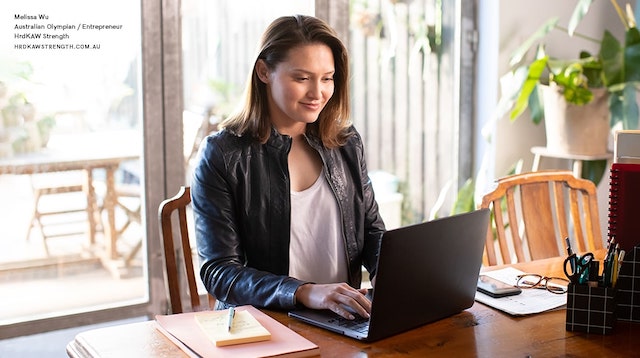
GD: How will you manage your businesses while you’re away at the Games?
MW: Yes, that’s a challenging one [laughs]. HrdKAW and the Australian Diving Academy are the easiest, as I have business partners to run them while I’m away. Havok Athletic will be the most challenging one.
I’m definitely going to get a lot of help from my family for orders, but I’ll try and automate as much as I can. I’ve trained my mum to do the orders and I help with the computer part, but Havok will definitely be the most challenging one to manage while I’m away.
GD: How does GoDaddy help support your business dreams?
MW: Having the help of GoDaddy for my websites has been amazing.
It [website building] is something I’m not very good at, so having that support behind me is really, really important.
I think the [GoDaddy] business is amazing and learning more about them has been exciting. I just used them for domains in the past, and didn’t know they did websites and all these other things. Even before the Olympics my experience with their customer service was really positive, so I’m looking forward to learning more about GoDaddy and all the things they can do.
Can’t make it to Tokyo? Follow Melissa’s performances on Instagram, Twitter or LinkedIn. Be sure to check out her personal sponsor, Funkita.
